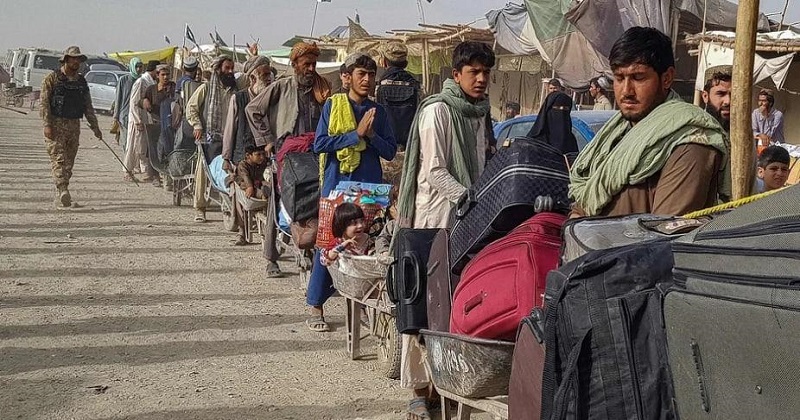
The Norwegian Refugee Council (NRC) warned on Thursday that 23 million people in Afghanistan are starving and economic bottlenecks that prevent money from flowing into and out of the country must be removed.
According to reports, the NRC study claims that the economic sanctions put on Afghanistan are prohibiting humanitarian organisations from getting monies into and out of the country, hindering emergency help.
Humanitarian organisations will be unable to help millions of people in need unless the US Treasury Department and other donor agencies take steps to enable banks to facilitate humanitarian financial transfers and support Afghanistan’s central bank in resuming its core functions.
‘The unresolved liquidity crisis is a key driver in what is becoming the worst humanitarian catastrophe in the world. We recently called for USD 4.4 billion for starving Afghans – the biggest call of its kind in the history of humanitarian work. But unless the US Treasury and other Western financial authorities enable us to transfer the aid money, we will be forced to work with our hands tied, unable to get that money to the communities that desperately need it’, warned Jan Egeland, NRC’s Secretary-General, reported Tolo News.
The study goes on to say that while the licences provided by the US Department of Treasury and the UN’s exemption of sanctions on humanitarian aid are good moves in the right direction, they are insufficient.
‘Millions of Afghans will suffer unimaginable consequences unless the Afghan central bank is provided with sufficient support to resume its key functions, including the purchase and circulation of banknotes, with appropriate safeguards in place. Unless this happens, we will struggle to respond to this crisis and the country’s economy will continue to skydive’, said Egeland.
Also Read: Kerala is experiencing an Omicron wave: Health Minister
As per the report, the NRC has encouraged the US and European governments to help banks in enabling money to be sent into Afghanistan, as well as humanitarian organisations in withdrawing funds after they are in Afghanistan. The UN and other international humanitarian organisations have also warned of a humanitarian catastrophe in the country.
On Wednesday, the UN announced the beginning of its One-UN Transitional Engagement Framework (TEF) to assist Afghans in 2022 by sustaining basic services and conserving important community structures.
Since the Taliban assumed control of Kabul, the humanitarian situation in Afghanistan has deteriorated dramatically. The suspension of foreign aid, the freezing of Afghan government assets, and international sanctions against the Taliban have thrown the country into a full-fledged economic crisis, which was already plagued by high poverty levels.

Post Your Comments